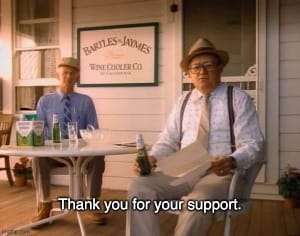The Supreme Court did something really bad, and not for the first time
The complete lack of transparency is the enormous problem with the 6-3 partisan ruling in favor of Virginia Republicans.

This morning, the U.S. Supreme Court did something bad, ruling 6-3 that the state of Virginia could continue purging names from its rolls of registered voters, without explaining why. Here is what happened:
In August, Governor Glenn Youngkin, a Republican, told Virginia election officials to start removing the names of non–U.S. citizens accidentally included on the state's lists of registered voters. On its face, that sounds harmless; noncitizens aren't allowed to vote, so their names shouldn't be on those lists.
In practice, though, those names include noncitizens who have since become naturalized U.S. citizens, as well as citizens who ended up flagged accidentally for some reason. More importantly, the National Voter Registration Act of 1993 very clearly says states can't purge their voter rolls 90 days or less before a federal election. That's specifically to prevent state governments from engaging in shenanigans that could hurt a party's or a candidate's chances. Because our system has built-in safeguards to catch votes cast by anyone who isn't registered, the harm of leaving those names on the voter rolls is much smaller than the harm caused by mistakenly removing the names of Americans who do have the right to vote. And in fact, last week, the law firm representing Virginia "repeatedly acknowledged that the program was almost certainly canceling the registrations of legal voters." More than 1,600 names have been removed from the state's voter rolls so far.
The removal of those names most likely won't have a noticeable effect on the 2024 presidential election—Virginia has gone blue since 2008, and if that changes, it won't be due to such a small number of votes. A lot of those 1,600 names should be removed, and some of the legal voters who were mistakenly unregistered will just re-register and vote. (You can register at your polling place on Election Day in Virginia.)
But here is the thing: A U.S. district court ruled that the purge was illegal. The Youngkin administration appealed, and a three-judge panel of a U.S. court of appeals once more ruled, unanimously, against the Virginia program. That wasn't surprising, because again, the National Voter Registration Act is very clear about this kind of thing.
So Virginia appealed the decision again, and it went before the U.S. Supreme Court. And the six conservative justices on the Supreme Court ruled that Virginia could keep purging its voter rolls after all—without explaining their reasoning.
Since 2017, the Supreme Court has made frequent use of what has been dubbed the "shadow docket." Orders from the shadow docket usually aren't signed, and don't come with any explanation of why the court ruled the way it did. Traditionally, the shadow docket has been used for more mundane rulings, in a way that makes sense. Many, many cases make their way to the Supreme Court, and a lot of them are decided for fairly obvious reasons, and there just isn't time to write up those reasons every time.
But starting a few years ago, during the Trump presidency, the court dramatically ramped up its use of the shadow docket, and started using it for consequential rulings too. From a 2021 Reuters piece:
One five-sentence order in December 2017 allowed Trump, a Republican, to ban travelers from several Muslim-majority countries. A four-sentence order in January 2019 similarly granted Trump’s request to ban most transgender troops from the military. Another order in July 2020—in just one sentence—allowed Trump to redirect military funds to build part of a wall on the southern border with Mexico.
The complete lack of transparency is the enormous problem here. It has been considered a matter of settled law that in the United States, the government can't discriminate against people based on their religion or sex or gender, and that the president can't move vast amounts of money around without authorization from Congress. When exceptions have been made, it's been incumbent upon someone to explain why. If the Supreme Court can just overturn decades of precedent without explanation, that turns the law into Calvinball: no rules you can count on, if six people in robes decide they disagree with you. It also makes it much harder to seek remedy through the legal system. Lawyers win cases by looking at rulings and trying to poke holes in them. When the Supreme Court doesn't explain why it ruled in a particular way, the lawyers have nothing to look at.
When two lower courts rule that Virginia's program to purge its voter rolls is illegal, based on a straightforward reading of a straightforward law, the Supreme Court should be explaining itself when it rules in the opposite direction. Especially when it's the six Republican-appointed justices ruling in favor of a Republican governor's administration (and the three Democratic justices note they'd have ruled against it). And especially especially when it happens less than a week before the election. To any rational observer, it looks like one party simply putting its own interests ahead of the law. And to be clear, that's what it is. There's not a mysterious alternative reason for the six Republicans to overrule two lower courts that they just can't tell us about. They're just cheating scum.
The Fun Part
![[Before the post office was invented] SOME GUY: I need someone to deliver an important document PIGEON: *simply existing* SOME GUY: You seem trustworthy —post by @roxiqt.com on Bluesky, 15 October 2024](https://www.normalnewsletter.net/content/images/2024/10/Screen-Shot-2024-10-15-at-4.22.14-PM.png)
Having a Normal One comes out Monday through Friday. Sign up for a free trial subscription. Posts are free to read after one day at normalnewsletter.net.
Hit me up at joshwimmer@gmail.com with questions, suggestions, thoughts and feelings, tips, and politely worded corrections and criticism. If you think someone would be interested in this newsletter, forward it to them.
